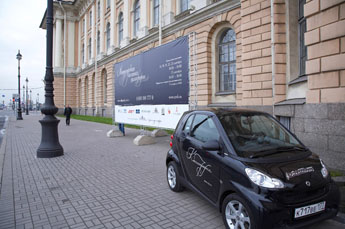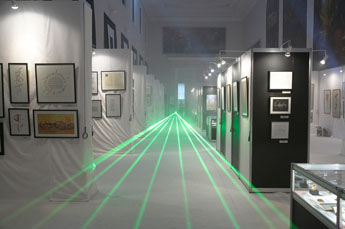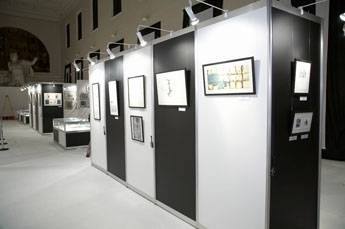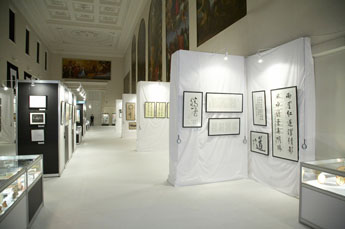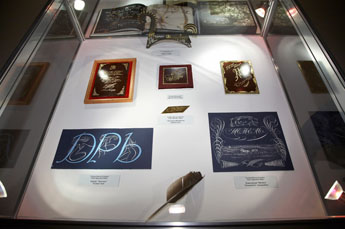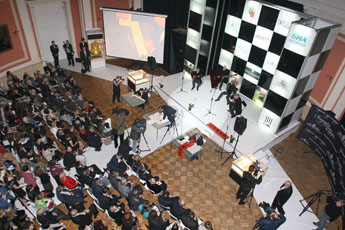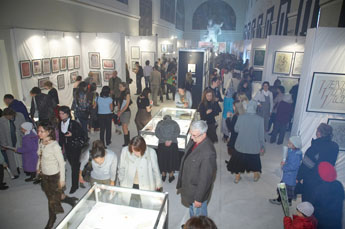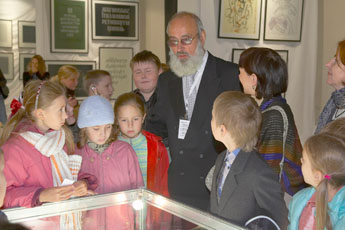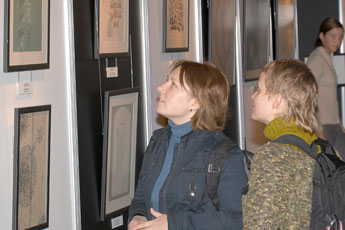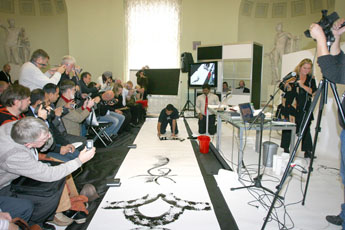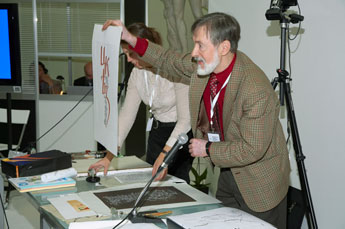On the 13th anniversary of the world's first International Exhibition of Calligraphy
13 years ago, in these September days, the world's first International Exhibition of Calligraphy took place in the historic halls of the Academy of Arts in St. Petersburg. It featured more than 68 artists from 26 countries, presenting a variety of calligraphic traditions and schools: refined European calligraphy, Arabic script, ancient Chinese characters, Cyrillic letters, and calligraphic abstract paintings among many others. Lasting six days, the exhibition was visited by 17 thousand people, including nine thousand children. More than two thousand people attended 27 lectures and workshops.
The exhibition served as a driving force in creating the National Union of Calligraphers, headed by Alexey Shaburov, and became a starting point for establishing the world's first World Calligraphy Museum, which now contains works by leading calligraphers from more than 70 countries, with a total of 6,000 exhibits. This event marked the beginning of a major calligraphy movement in Russia and contributed to the creation of the National Union of Calligraphers, which also celebrated its 13th anniversary this year.
A year later, the International Exhibition of Calligraphy was held at the Sokolniki Exhibition and Convention Center, turning Moscow into the capital of world calligraphy for a month. In 2010, the Third International Exhibition of World Calligraphy moved to Veliky Novgorod, creating an unforgettable experience for the residents of the city, as well as the participants of the world's largest project dedicated to the art of beautiful writing.
Further exhibitions were regularly held in the capital. The last significant event that took place in September 2019 was The Great Chinese Calligraphy and Painting Exhibition. Two leading associations of China – the Chinese Calligraphers Association and the Sharp-pointed Nib Association, as well as representatives of Hong Kong, took part in the event. The exhibition was driven by a desire to further strengthen Russian-Chinese relations and mutually beneficial cooperation.
When there are no words left, the meaning is still preserved.
